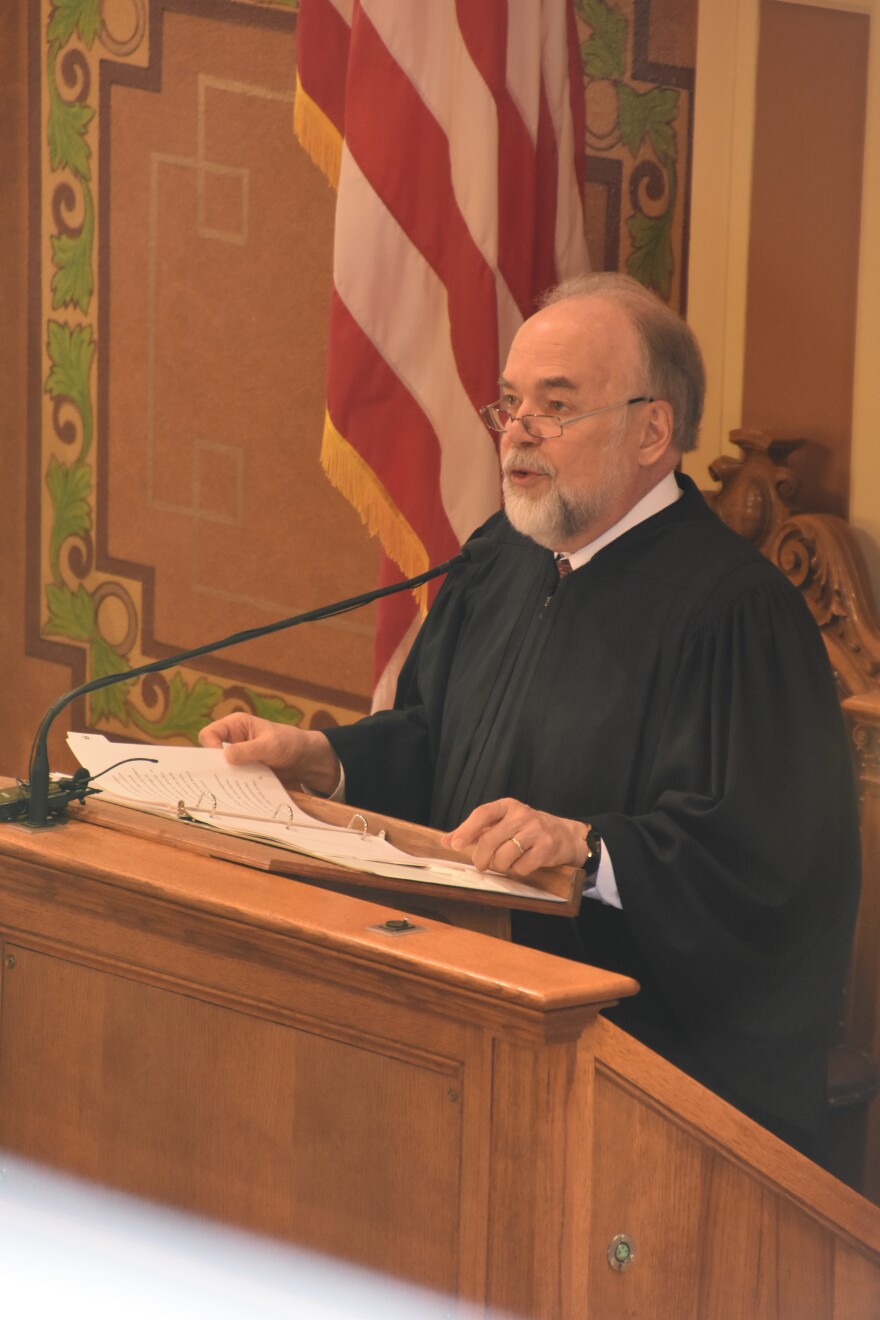South Dakota’s State Supreme Court Chief Justice David Gilbertson is pointing to the success of drug courts in reducing recidivism.
During his annual State of the Judiciary speech, Gilbertson called for similar courts for veterans and mental health.
Some legislators agree, but worry about funding issues…
It was Gilbertson’s 17th annual State of the Judiciary.
Gilbertson says thinks the time has come to develop an in-patient component to the state’s drug court program. He says society cannot expect those with addictions to work full time and move successfully through the drug court program if they’re living under a bridge or a cardboard box.
Republican State Representative Mike Stevens is chair of the House Judiciary committee. He says those initial investments into the drug court program are saving the state money.
“Those people who get into these programs and we can get them on probation and help in that regard, 82 to 83 percent of them don’t re-offend. Whereas, if you have to send them to jail, the percentage is closer to 40-some-percent,” Stevens says. “That’s a huge difference and it also equates to how much money we can save as a state and taxpayer money, but really in lives that are saved and families that are kept together.”
But to further give the chief justice what he calls for would require a state investment. State Senator Lance Russell is chair of the Senate Judiciary committee.
He says his only concern is the state funding those proposed ideas…
“He’s offering a lot of, probably, very good ideas, but my concern from a legislative standpoint is how do we afford them?” Russell says. “There were a number of things that would be very costly as proposals. I’m really interested in making sure that other states have implemented these things, done it in a fashion that has been very effective, and very cost effective for the tax payers.”
In a year with weaker than anticipated revenue, lawmakers will have to find creative ways to fund an in-patient program in the drug courts.


